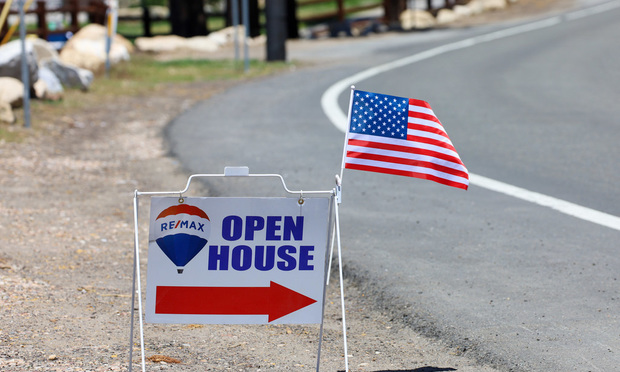Lobbyist Warns Fla. Of Big WC Costs
By E.E. Mazier
NU Online News Service, Jan. 28, 11:50 a.m. EST? An insurance trade group representative pushing a new measure to reform Florida's workers' compensation system, said he warns legislators of big rate hikes if the measure fails to pass.
William Stander, government affairs representative for the Alliance of American Insurers' Southeast Region said he tells lawmakers if their choice is inaction- price increases could surpass 30 percent.
Mr. Stander is part of a coalition of insurer and employer trade groups that last week presented a package of reform measures to the legislature's House Insurance Committee. Their effort follows an unsuccessful bid for reform last year.
The package developed by the coalition identifies and recommends changes to the "troubled Florida workers' compensation marketplace that will cut to the heart of the system's primary cost drivers, ultimately improving the state's business environment," Mr. Stander said.
He added that the measure essentially seeks to "take the money out of the middle that's fattening up the doctors and lawyers and push it back out toward the edges, to the employers and employees in the forms of lower rates and higher benefits."
According to the Alliance, the key elements of the package include:
? Requiring claimants to pay attorney fees.
? Prohibiting hourly fees except for medical-only cases which would be capped at $1,000.
? Revising the definition of "catastrophic injury" in the context of qualifying for permanent total benefits
? Eliminating Social Security qualification as a presumption to qualifying for permanent total benefits.
? Eliminating exemptions for the construction industry "so that everyone has to pay," Mr. Stander stated.
"The Florida workers' compensation system is in need of substantial reform," said Nancy Schroeder, assistant vice president, workers' compensation for the National Association of Independent insurers. NAII is part of the coalition.
"The reform package before the Senate Banking and Insurance committee will provide for a balanced workers' compensation system that will increase weekly permanent partial benefits for workers while it corrects a number of problems that increase costs," she continued.
Mr. Stander noted that the reform measure sponsored by Florida Senator Jack Latvala, R-Paul Beach, last year narrowly missed passage.
Last year's proposal, which many insurers and small-employer groups cited as inadequate, resulted from a series of public meetings on workers' compensation reform.
Much of the objection to last year's measure had to do with "a great deal of confusion as to how the bill would price out," Mr. Stander said.
There was also some concern, including among lawmakers, that the bill was not the product of "a larger group," he added. Instead, certain insurance industry experts and a large-employer organization, Associated Industries of Florida, largely wrote the bill, Mr. Stander indicated.
He added that when the bill failed, the Alliance went to work on putting together "a strong, cohesive coalition of employers and carriers to really work together on a draft we could all support and then go in together to convince the legislature" to pass it.
But in a classic "Catch-22" situation, members of the Florida House Insurance Committee have now complained to the coalition that the resulting proposal is longer and more complicated than last year's measure.
As noted by Mr. Stander, "When you have a coalition put together a bill, obviously the bill becomes large because everyone wants at least a little bit of their ideas in the bill, otherwise there's no reason for them to buy into it."
But last year's bill was not the only basis of this year's proposal. Before taking the idea to the insurance and employer communities at large, Mr. Stander said, a task force of Alliance members produced a paper from a claims perspective entitled "A Call for Reform: Florida Workers Compensation."
Mr. Stander added that the ultimate reform package also includes ideas and suggestions from other coalition members.
From the insurance world, the coalition includes the Alliance, which is based in Downers Grove, Ill., the NAII based in Des Plaines, Ill., the Association of American Insurers based in Washington, D.C., and the Florida Insurance Council based in Tallahassee, Fla.
Employer-group members of the coalition include Associated Industries of Florida, Florida Retail Federation and the Florida Chamber of Commerce, all based in Tallahassee, as well as the National Federation of Independent Business of Washington, D.C. and the Associated Builders & Contractors of Rosslyn, Va.
According to the Alliance, Mr. Latvala will again sponsor this year's bill in the Senate.
But passage of the proposal this year will be difficult, Mr. Stander admitted. "It's difficult to do workers' comp in any year ?and it's going to be especially difficult to do it when you've have redistricting and cabinet reorganization," he said.
Mr. Stander was referring to the fact that because the Florida legislature does not have a separate session for redistricting, it will be undertaking that task during the current session.
Additionally, the lawmakers will be looking at the reorganization of the cabinet-level post of treasurer/ insurance commissioner. That post will be combined with the post of state comptroller into the new position of state chief financial officer for the state, Mr. Stander said.
These two factors could "politicize" the issue of workers' comp reform, with lawmakers tempted to hold up the workers' comp measure to get through their redistricting map or cabinet reorganization plan, he suggested.
Despite the foreseeable difficulties, the coalition is determined to press the point to lawmakers that workers' comp is in such a "difficult position that if they don't do something now it's really going to come home to roost, and not in several years but maybe next year," Mr. Stander stated.
He added that most lawmakers --who are subject to two-year term limits --do not realize that the last time Florida passed comprehensive workers' comp reform was in 1993. They also are unaware that this followed a 32 percent hike in workers' comp premiums in 1992, Mr. Stander stated.
He added that he likes to say to the lawmakers. "If you wait until we have a 32 percent rate increase to provide you with the impetus to pass comprehensive comp reform, that's going to be your decision."
In the coalition's view, the reforms are needed now, he said.
Want to continue reading?
Become a Free PropertyCasualty360 Digital Reader
Your access to unlimited PropertyCasualty360 content isn’t changing.
Once you are an ALM digital member, you’ll receive:
- Breaking insurance news and analysis, on-site and via our newsletters and custom alerts
- Weekly Insurance Speak podcast featuring exclusive interviews with industry leaders
- Educational webcasts, white papers, and ebooks from industry thought leaders
- Critical converage of the employee benefits and financial advisory markets on our other ALM sites, BenefitsPRO and ThinkAdvisor
Already have an account? Sign In Now
© 2024 ALM Global, LLC, All Rights Reserved. Request academic re-use from www.copyright.com. All other uses, submit a request to [email protected]. For more information visit Asset & Logo Licensing.








